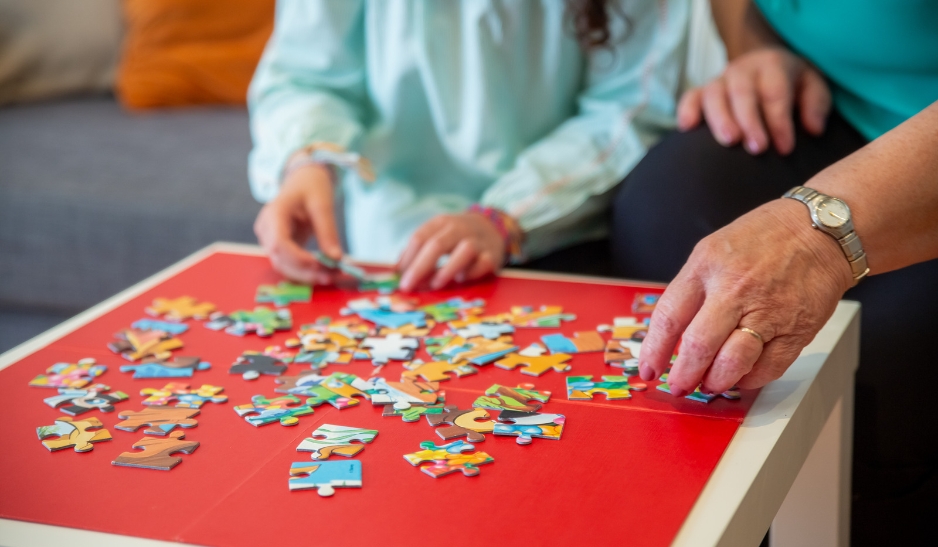Integrating Critical Thinking in Out-of-School Time(OST) Activities

Integrating Critical Thinking in Out-of-School Time(OST) Activities
In the evolving, dynamic world of the 21st century, the importance of fostering critical thinking skills in our children cannot be overstated. Rapid advancements in technology, shifting societal norms, and the increasingly complex global stage make it vital for children to think critically and independently. Children need to develop the ability to analyze information from different sources, to question norms, to innovate, and to make decisions that will impact their lives and the world around them. This development starts from a young age and extends well into adulthood, shaping individuals who can confidently navigate their way through life's intricacies.
An oft-overlooked but potent avenue for the development of these skills lies in the world of out-of-school time (OST) activities. Far from being mere diversions or hobbies, these activities present unique opportunities to foster and refine critical thinking in children. Through engaging and practical experiences, children can hone their critical thinking skills in a non-academic setting. From arts and crafts to sports and digital games, OST activities can present a multitude of scenarios that require problem-solving, strategic planning, and decision-making – the bedrock of critical thinking.
Understanding Critical Thinking
Critical thinking is a cognitive skill that involves the ability to reason, analyze, and evaluate information objectively. It is more than just thinking clearly; it's about thinking for oneself. In an age of information overload, developing this ability to discern the relevant from the irrelevant, the true from the false, is of paramount importance. Children with well-developed critical thinking skills are better equipped to understand the world around them, to overcome challenges, and to seize opportunities that come their way.
The role of critical thinking in child development is substantial and multi-faceted. It enhances children's problem-solving abilities, enabling them to devise innovative solutions to various challenges. It also aids in the development of social skills, allowing children to understand and empathize with different perspectives. Moreover, it cultivates a sense of independence and self-confidence in children, empowering them to make informed decisions and form reasoned judgments. By fostering critical thinking, we are not just improving our children's cognitive abilities; we are preparing them for a world that demands innovation, adaptability, and independent thought.
Indeed, critical thinking becomes even more crucial when we consider the digital age we're living in. With the internet becoming a staple of our lives, children are exposed to vast amounts of information daily. This constant exposure necessitates the ability to critically assess the information they receive. Being a critical thinker allows children to differentiate between reliable and unreliable sources, recognize biases, and understand implications. This skill is vital not just for academic purposes, but also for becoming responsible digital citizens. Therefore, by fostering critical thinking, we are preparing children to navigate the digital world safely and responsibly.
The Role of Out-of-School Time Activities
Out-of-School Time (OST) activities are all those pursuits children engage in outside of the traditional school setting. These can range from structured programs, such as clubs or sports teams, to unstructured play or hobby development at home. Regardless of their formality, these activities provide a distinct learning environment for children, one that complements their formal education by offering experiential, hands-on learning opportunities.
The benefits of OST activities are manifold. They promote social interaction, physical health, creativity, leadership, and most pertinently, critical thinking. While formal education often necessitates a more structured, guided form of learning, OST activities provide room for exploration, experimentation, and failure, all of which foster critical thinking skills. Children participating in these activities learn to question, reason, and make decisions independently, applying their cognitive abilities in a practical context.
Beyond the cognitive benefits, OST activities can play a significant role in a child's social and emotional development. These activities often necessitate teamwork, communication, and empathy - skills that are integral to forming and maintaining healthy relationships. In addition, OST activities can serve as an outlet for stress, providing children with a break from academic pressures while still contributing to their personal growth. Whether it's through team sports, art classes, or online multiplayer games, children get the opportunity to connect with others, understand different perspectives, and develop emotional intelligence.
Practical Ways to Integrate Critical Thinking in OST Activities
Integrating critical thinking into OST activities requires subtle but intentional efforts. The goal isn't to transform leisurely pursuits into rigorous academic exercises but to weave in elements that naturally engage children's cognitive skills. This can be achieved by providing opportunities for problem-solving, encouraging creativity, and promoting independent decision-making within the activities.
-
Arts & Crafts:
Encourage children to create original works or repurposed materials, which can stimulate innovative thinking. For instance, you might ask a child to create a sculpture from recycled materials, promoting creativity and problem-solving as they figure out how to utilize the materials effectively. -
Sports and Outdoor Games:
Introduce elements of strategy and problem-solving into physical activities. For example, in a game of soccer, children could be asked to develop game plans or make quick decisions during a game. This requires logical reasoning and evaluating multiple scenarios, fostering critical thinking. -
Digital and Educational Games:
Choose games that involve puzzles, strategy, or problem-solving. These often require thinking several steps ahead. For instance, games like chess or coding games can significantly enhance children's analytical thinking and forward planning skills.
Incorporating critical thinking into OST activities isn't about taking the fun out of free time; it's about enhancing the value of that time. By integrating strategic elements and opportunities for problem-solving into leisure activities, we can provide children with a platform to develop and exercise critical thinking skills in a fun, low-pressure context. Remember, the objective isn't to lead children to a predetermined solution but to guide them to their own reasoned conclusions.

Benefits and Potential Challenges
Integrating critical thinking into OST activities provides children with numerous benefits. The development of critical thinking skills can fundamentally change how children approach problems. Instead of relying on rote solutions, they can devise creative strategies, make informed decisions, and troubleshoot their way out of challenges. This type of thinking promotes flexibility and adaptability, skills that are essential in our rapidly changing world. Furthermore, as children begin to trust their own reasoning abilities, they gain a sense of independence and self-confidence that extends beyond these activities and permeates all areas of life.
However, the integration of critical thinking into OST activities also presents potential challenges. One common obstacle is the child's possible reluctance to participate in activities that seem 'educational' outside of school. To overcome this, it's essential to make the activities fun and engaging, with the educational elements subtly interwoven. Resource limitations can also be a challenge, especially for more structured activities. This can be navigated by making use of available resources, being creative with materials, and prioritizing activities that stimulate critical thinking but don't necessitate expensive materials. Ultimately, the goal is to foster an environment where children are motivated and empowered to think critically, despite the challenges.
Conclusion
Fostering critical thinking skills in our children is not just an educational imperative; it's a societal one. Our rapidly evolving world requires individuals who can think independently, assess information objectively, and make reasoned decisions. Integrating critical thinking into OST activities is a practical and effective approach to nurturing these skills in children.
Moreover, taking the time to intentionally design OST activities can lead to even more powerful learning experiences. Curacubby, with its dedicated focus on enhancing educational experiences, can be a valuable partner in this endeavor. Our tools, customizable to the specifics of your programs, can support you in creating engaging, thought-provoking OST activities. Together, we can cultivate an environment that not only entertains children but also equips them with critical thinking skills, empowering them to become proactive learners and responsible citizens.









